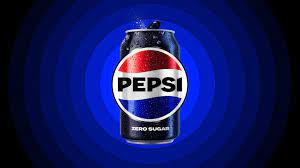In a surprising twist, Pepsi, one of the world’s most recognizable and consumed soft drink brands, has found itself at the center of a controversy regarding its origin and potential associations with Israel. Recent claims and discussions have raised questions about whether Pepsi can be considered an Israeli product.
This debate gained traction when a social media post went viral, alleging that Pepsi has connections to Israel, a country with a long history of political and territorial disputes. The controversy centers around the belief that some PepsiCo products are manufactured and distributed in Israel.
To clarify this matter, it’s important to understand the background of PepsiCo, the company behind the Pepsi brand. PepsiCo is indeed an American multinational food and beverage corporation with a global presence. It was founded in the United States and is headquartered in Purchase, New York.
Pepsi, the flagship product of PepsiCo, is known for its worldwide popularity and a wide range of flavors and variants. The soft drink, originally created in the United States, has been consumed across the globe for decades.
However, what has fueled this controversy are allegations that Pepsi products are manufactured or distributed in Israel, and therefore, some consumers perceive Pepsi as having associations with the country. This perception has led to calls for boycotts of the product in some regions.
It is important to note that as of my last knowledge update in September 2021, PepsiCo had not publicly announced any substantial manufacturing or distribution operations within Israel. Therefore, Pepsi’s status as an Israeli product remains a subject of debate and discussion.
Consumers and activists who advocate for boycotts or ethical consumption may want to research the most up-to-date information regarding Pepsi’s affiliations and make informed decisions based on their beliefs and principles.
As this debate continues to evolve, it raises broader questions about the impact of social media on consumer perceptions and the role of multinational corporations in global conflicts. The controversy surrounding Pepsi’s origin serves as a reminder of the power of information and misinformation in today’s interconnected world.
